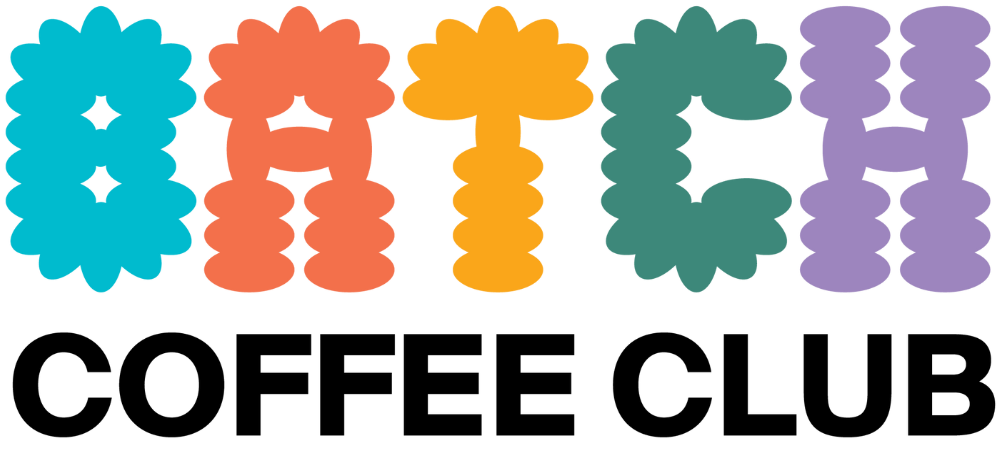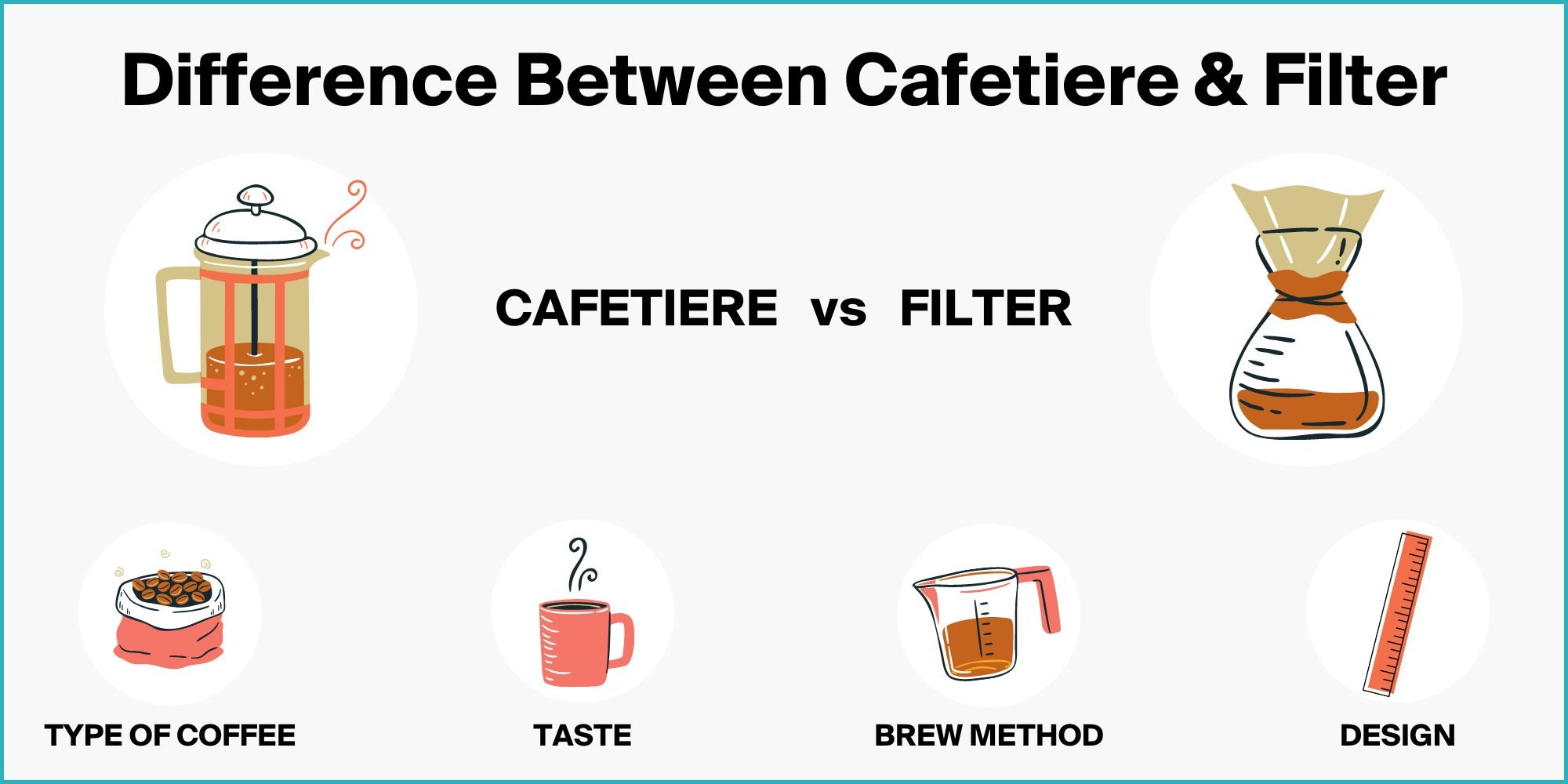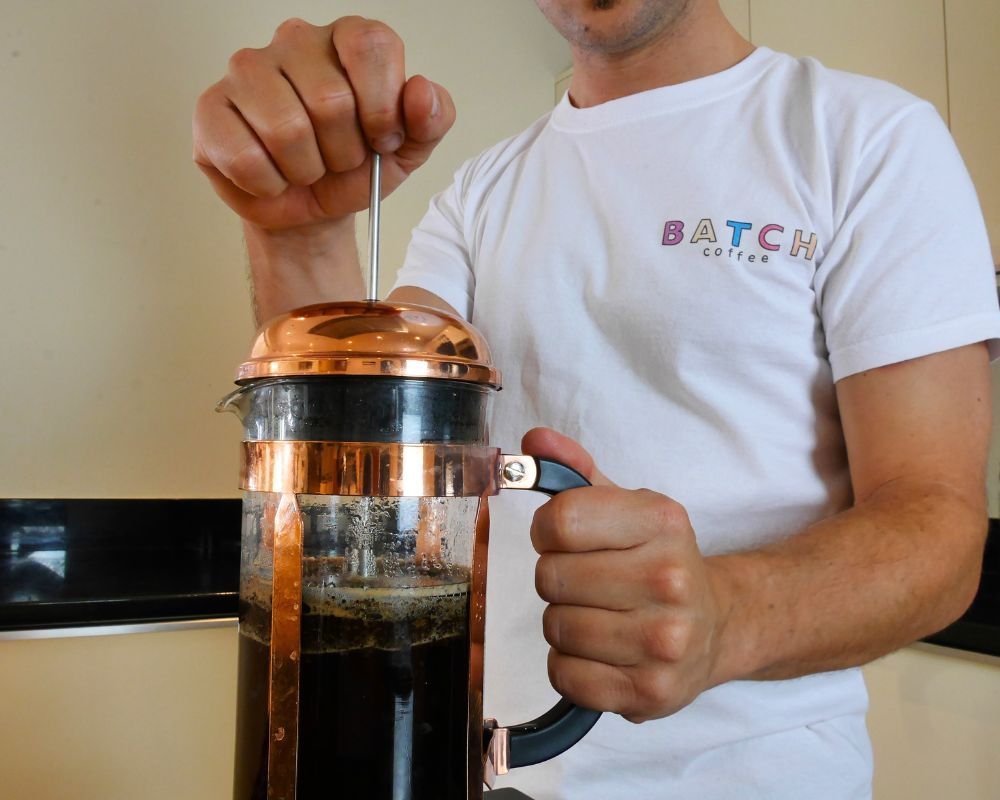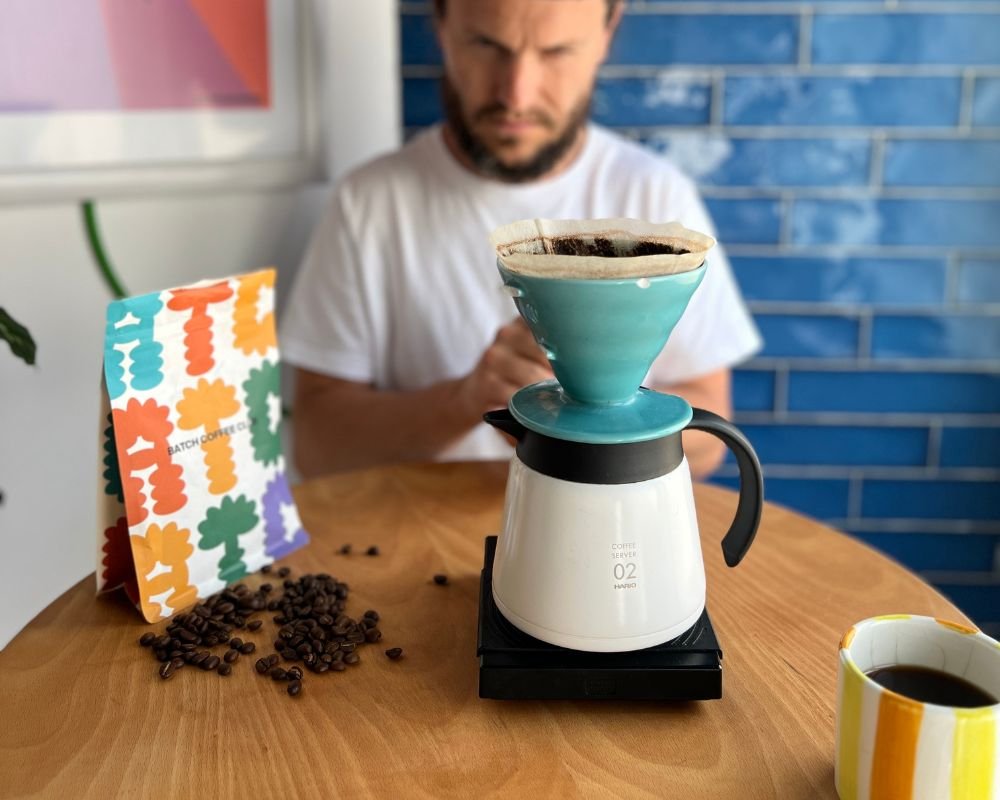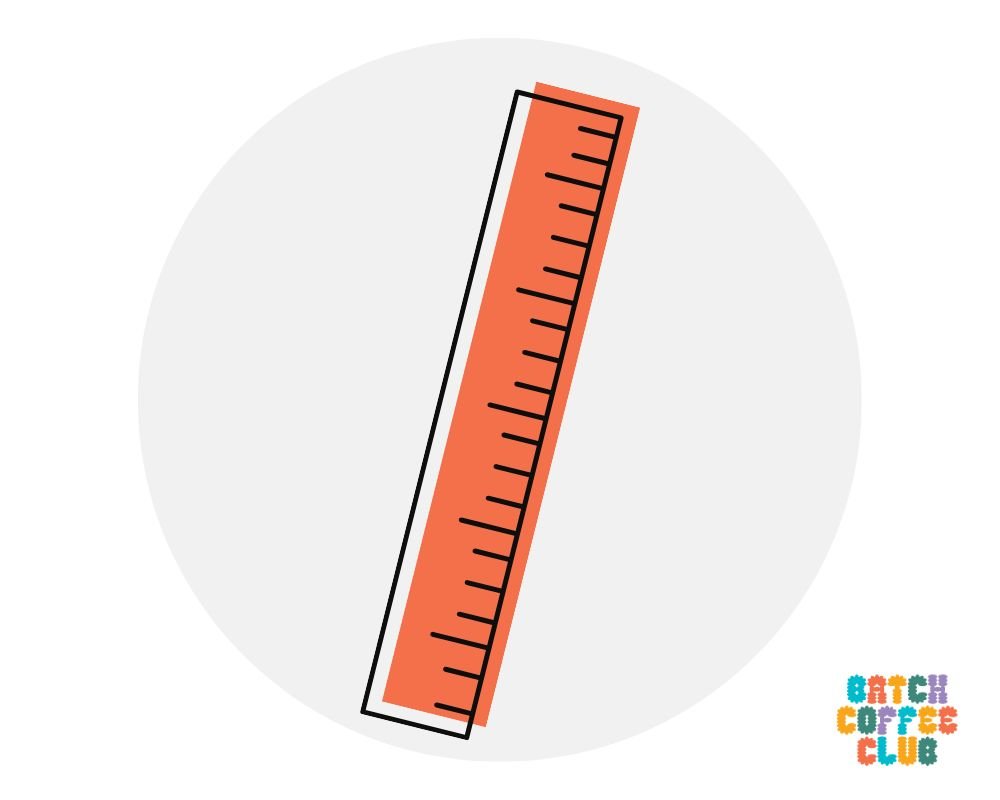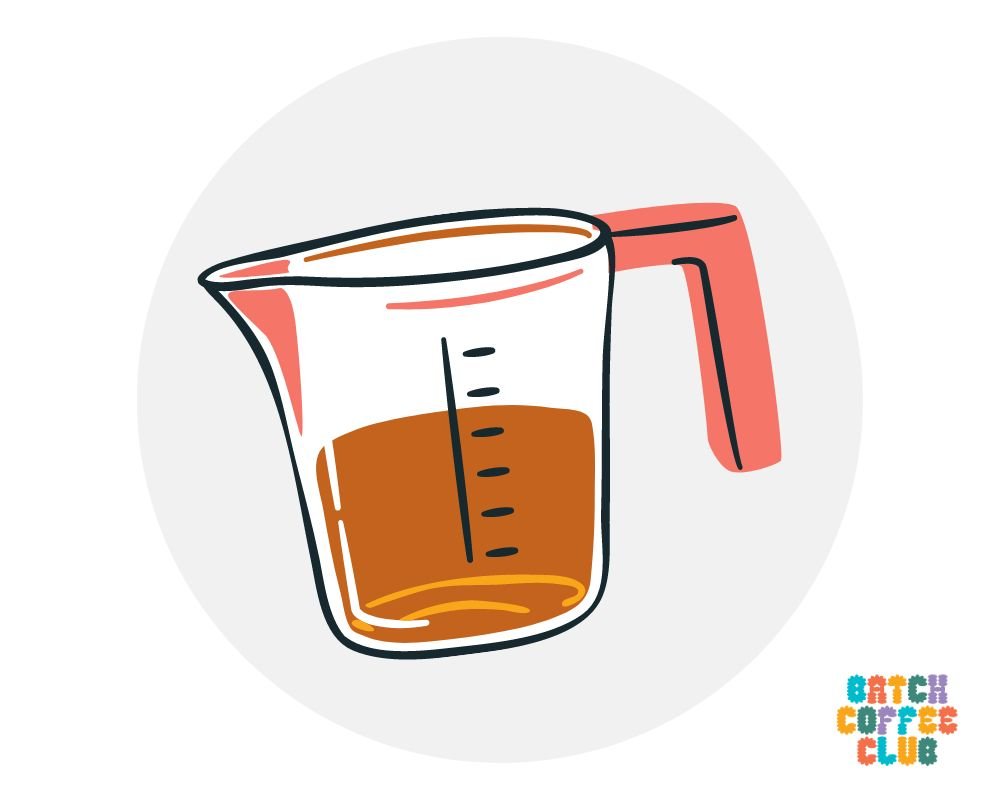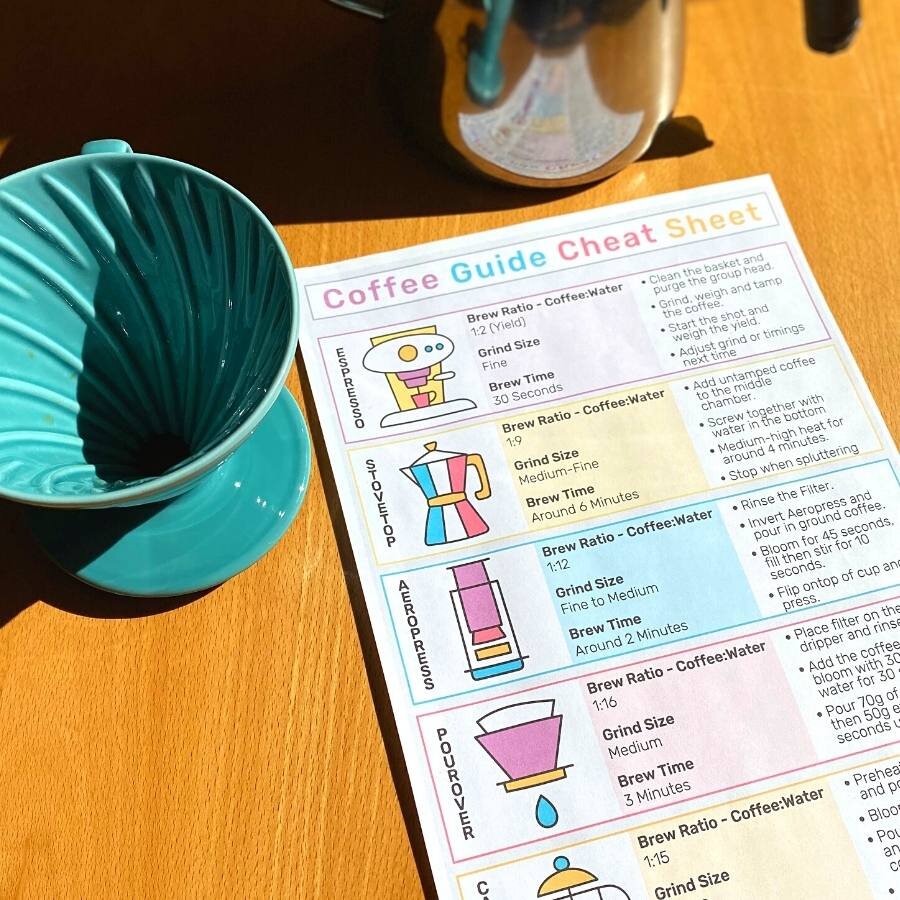Filter Coffee vs Cafetiere
Whether you are just diving into the world of specialty coffee and want to try and figure out which brew method to opt for.
Or you’re a cafetiere veteran looking for a change.
Whatever the reason, let me guide you through what I find are the main similarities and differences between cafetiere vs filter coffee.
Why Trust Me?
I’m Tom and I have been working in the coffee industry for over 10 years, starting my journey as a barista in Australia, working on coffee farms in South America and roasting coffee in The UK. Today I review and write about speciality coffee. I am the founder of Batch Coffee Club, which showcases the very best coffee from around the world.
Checkout our award-winning coffee subscription.
First of all a bit of structure, before I nosedive straight into the differences between cafetieres and filters, let’s outline what exactly these coffee brewing giants actually are.
What is a Cafetiere?
The humble but popular cafetiere (also called a french press or plunger) was invented in 1852 by Messers Henri-Otto Mayer and Jacques-Victor Delforge.
It is a very common brew method throughout the world for various reasons.
Structure
Let's have a look at the structure:
The body (or carafe) of a cafetiere can be made out of various materials such as glass, stainless steel or plastic.
Each material has its pros and cons and does largely come down to what you value, for instance if you value durability, then stainless steel is a good choice.
The plunger and lid is a mechanism that fits on top of the body, the mesh disk-like plunger should sit tight against the sides of the body to push the coffee grounds to the bottom.
Brewing
The cafetiere brewing method is one of the simplest in the game. There are a few subtleties in the recipe, however essentially ground coffee is added to the bottom of the carafe and water poured on top, this is then left for around 4 minutes before slowly plunging the mesh filter, so that the coffee grounds are collected at the bottom.
Taste
Taste-wise, cafetiere brews full bodied black coffee. The complete submersion of coffee grounds in the brew water alongside a typically stainless steel mesh plunger result in a fairly high TDS (total dissolved solubles) in the cup.
What is Filter Coffee?
Filter coffee is a term used in specialty coffee that means the coffee has been brewed by a device that uses a filter that is usually paper but occasionally cloth or a mesh. Unlike a cafetiere there are several different devices that brew filter coffee in various different ways, however the general concept is that water is poured over ground coffee which then passes through some sort of filter. Take a look at our guide on the best filter coffee makers.
Structure
Let’s take a look at the structure of a filter coffee maker:
As stated above there are various types of filter coffee makers, however a great example (and one of the most popular methods) is the Hario V60. The cone-like structure is designed to sit on top of either a coffee cup or pourer. Depending on your preference you can opt for a glass, ceramic, plastic or stainless steel V60 which again largely comes down to how and when you are brewing coffee.
Brewing
To brew a filter coffee takes a little more skill and patience. A presoaked filter is placed inside the cone before coffee grounds are added. Using a gooseneck kettle if you have one, pour over the water in slow concentric circles until all of the brew water that the recipe calls for has dripped through into the cup or server.
Taste
Tastewise I would describe a filter coffee as bright and well balanced. The filter stops both small grounds and oils passing through into the server which results in a lighter more complex brew.
Filter Coffee vs Cafetiere
So, now that we have covered what exactly they are, let's take a look at the differences between a cafetiere and filter coffee.
The Coffee
First off, the most important thing is the product - coffee.
Both cafetiere and filter brew long black coffee (as opposed to espresso which is short black coffee).
However there is a difference in these two long black coffees:
A cafetiere coffee you will be able to see is slightly cloudier and appears almost darker than the filter which you will be able to see is bright and more translucent.
As discussed above, this is because there is a higher percentage of coffee grounds in the cafetiere brew and when you finish your coffee you may be able to see a small amount of coffee grounds in the bottom of your cup.
The taste is also quite different. Filter coffee typically is lighter in taste and can highlight the more subtle flavours that are in the coffee such as citric or floral flavours. A cafetiere is bolder and has slightly more depth, you are more likely to be able to taste the darker notes such as chocolatey caramel flavours.
Design
Secondly, there is a difference in design between a cafetiere and filter coffee.
A cafetiere is usually an all in one method meaning that you just need coffee and water to make your coffee whereas a filter coffee maker requires you to buy filters and even a pourer/server.
Brewing
There is also a difference in brewing when it comes to filter and cafetiere.
Although the concept of adding water to coffee is the same across any brew method, there is also a difference in how you brew filter and cafetiere.
A cafetiere is fairly simple and doesn’t really require a great level of skill or any special equipment other than a regular kettle. By simply following a few simple steps you can achieve a really great cafetiere coffee.
Filter coffee on the other hand does require a bit of practice and although a regular kettle still works, if you want to get the best out of the coffee then I would recommend purchasing a gooseneck kettle for slower and more precise brewing.
Is There A Difference In Strength Of Coffee Between Cafetiere And Filter?
Strength is a bit of a hard word to quantify in specialty coffee as there are various ways one can class strong (checkout our article on what makes the strongest coffee).
Having said that I would describe cafetiere as being stronger than filter coffee, here’s why:
Strength can be described as either caffeine content, taste or concentration.
Although this can vary depending on the brew recipe, if you were brewing the same coffee as a filter and cafetiere there would normally be more caffeine in a cafetiere.
This is because although coffee is ground coaster for a cafetiere, the grounds come into contact with the water for longer during this method therefore extracting a higher percentage of caffeine from the grounds.
You also have to factor in the small ground that is still extracting caffeine in the cup which adds to the overall levels.
I would also describe a cafetiere as a stronger tasting coffee. By the same argument above, the coffee has a higher level of dissolved compounds which creates a stronger brew.
Environmental Impact & Sustainability
While both brewing methods can be eco-friendly choices compared to pod coffee systems, there are some notable differences in their environmental impact. Cafetieres, with their reusable metal filters, produce virtually no waste aside from the coffee grounds themselves (which can be composted).
Filter coffee methods typically require disposable paper filters, though these are biodegradable and can also be composted along with the grounds. However, you can opt for reusable cloth filters which combine the clean taste of filter coffee with minimal environmental impact. When choosing between the two methods, considering their long-term environmental footprint might help inform your decision.
Can You Use the Same Coffee in Filter and Cafetiere?
Yes you can use the same coffee beans in both cafetiere and filter coffee.
I would suggest that lighter roast coffee works better as a filter and darker roasts taste better when brewed with a cafetiere, however it is all down to preference. Check out our guide on best coffees for cafetiere.
If you are however referencing pre ground coffee, then the answer is still a yes and a no.
You can still brew cafetiere ground coffee with a filter coffee maker and filter ground coffee with a cafetiere, however you will end up with an under extracted or an over extracted coffee.
Coffee is ground to a level that best fits the brew method so you can optimally extract the right amount of coffee, if your coffee isn’t ground for your particular method then you are not getting the best out of your coffee. Checkout our favourite pre-ground coffees on the market.
FAQs
-
To be honest there isn’t a huge difference in price between a cafetiere and filter methods. Of course price ranges do vary and you can probably pick up both methods for less than £20, however I would always recommend buying quality so you don’t find yourself purchasing another one a few months down the line.
-
Yes, filter coffee is ok for a cafetiere, in fact some people prefer to grind their cafetiere coffee the same as filter to make a stronger tasting brew.
-
If you don’t want to learn a new skill and you want a ‘straight out of the box’ coffee maker then in this case a cafetiere is better than a filter. Also if you prefer darker more full bodied brews then a cafetiere may be a better fit for you.
-
If you are looking at brewing high quality specialty coffee and want to taste the complexities in your beans then filter is a better option than a cafetiere.
